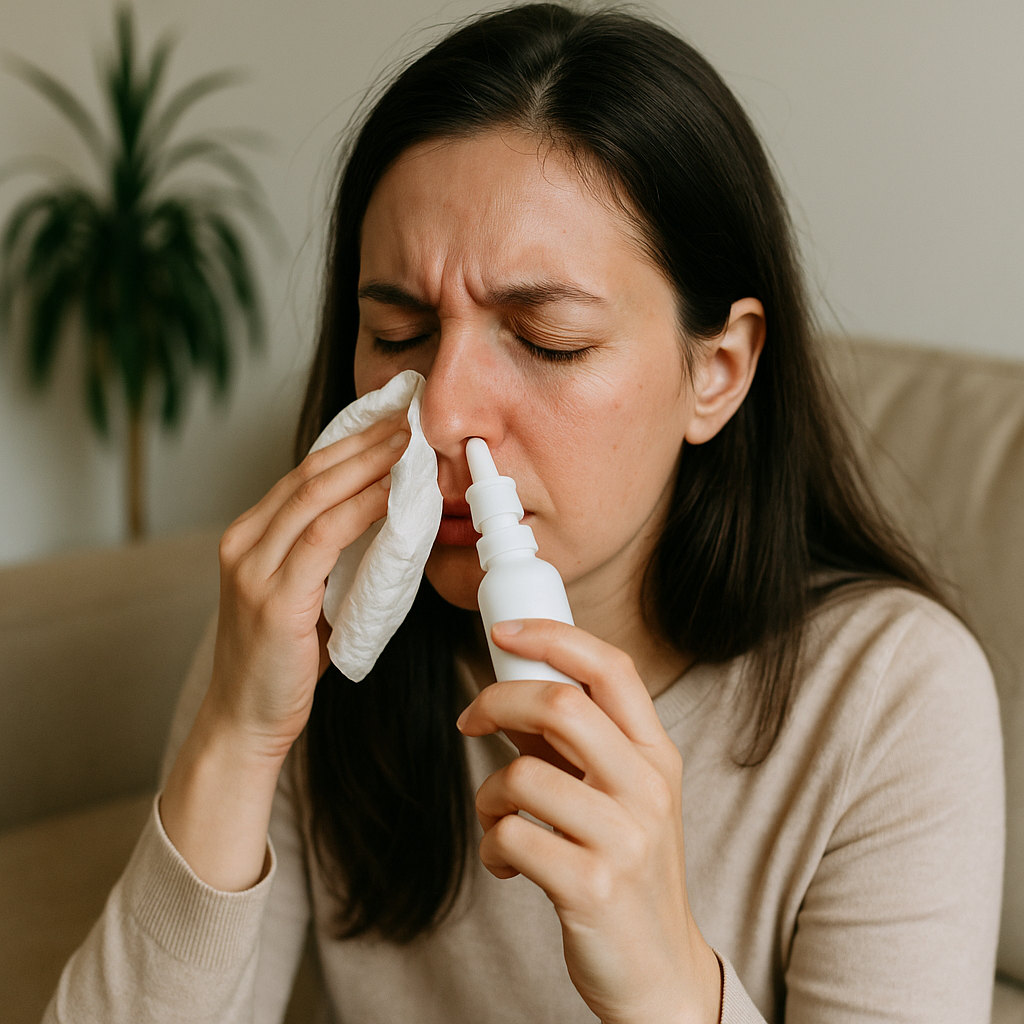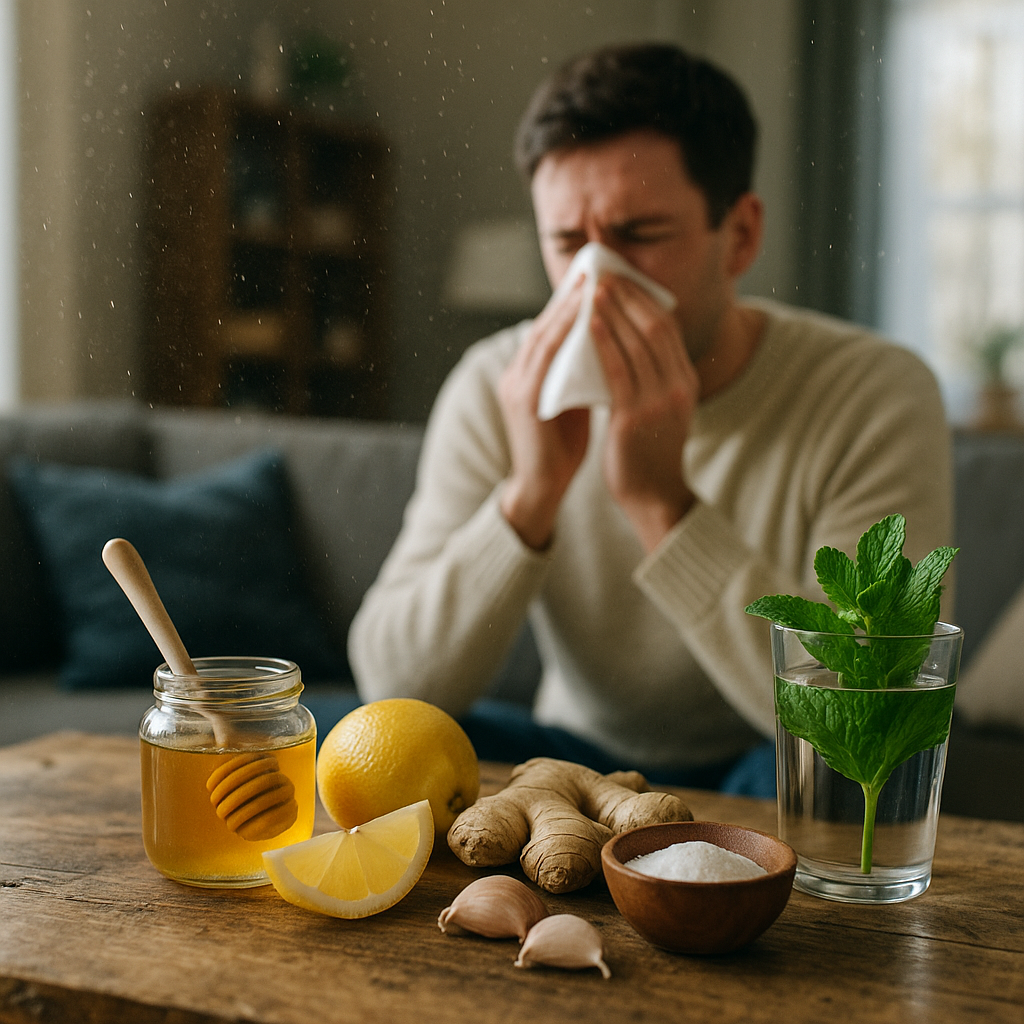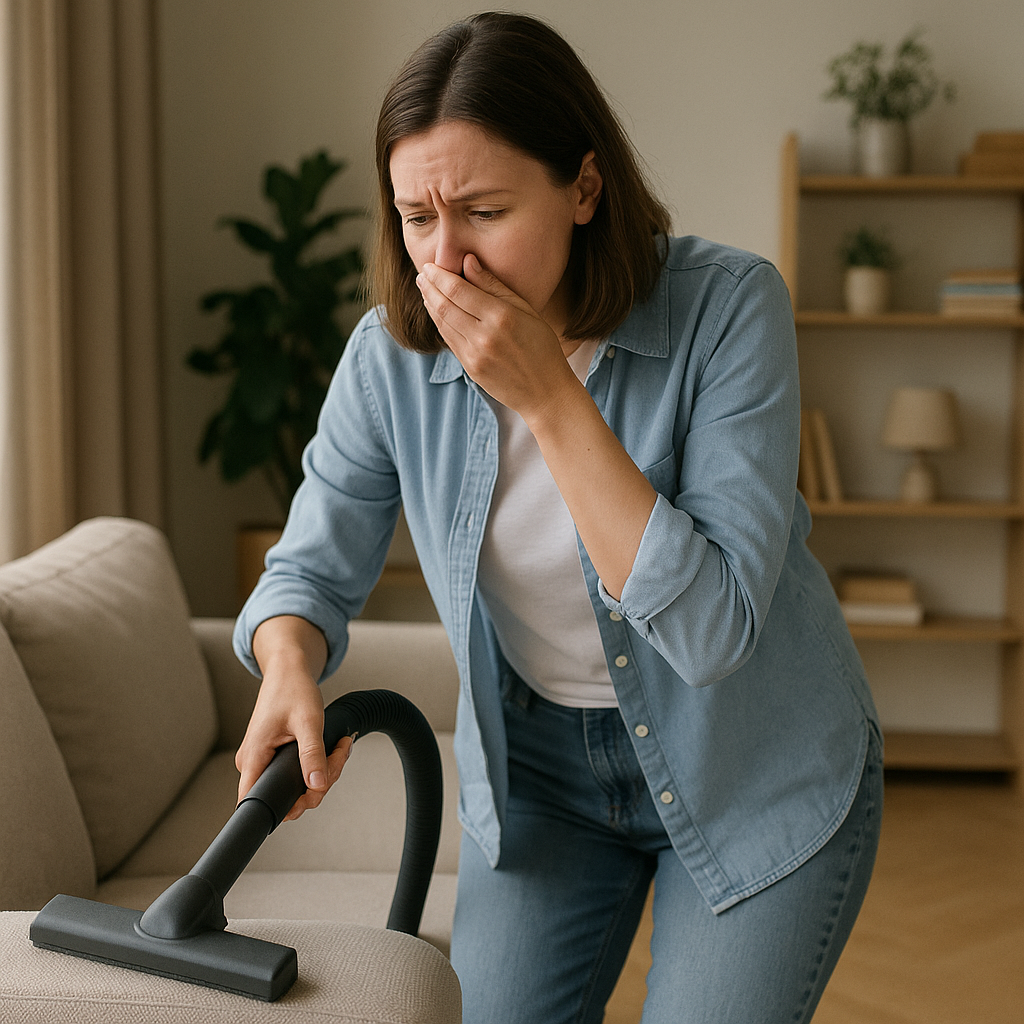Ask Ayurvedic doctor a question and get a consultation online on the problem of your concern in a free or paid mode. More than 2,000 experienced doctors work and wait for your questions on our site and help users to solve their health problems every day.
How to Get Rid of Dust Allergy Naturally and Effectively

Struggling to breathe easy at home? You're not alone. Figuring out how to get rid of dust allergy can be exhausting, especially when you're sneezing all day and tossing at night. The good news? You don’t always need a cabinet full of medications. With the right mix of awareness, natural remedies, and some smart habits, you can reduce or even eliminate those pesky reactions. Whether you're wondering how to cure dust allergy permanently, searching for reliable dust mite allergy treatment, or just need some solid home remedies for dust allergy, this guide's got you covered.
Let’s dive into practical, effective, and down-to-earth tips to help you finally breathe easier — and live better. And no, we’re not gonna suggest wrapping yourself in plastic or living in a bubble. Real-life solutions, real relief.

What Is Dust Allergy and Why It Happens
Dust allergy is your body’s way of saying, “Hey, I don’t like this stuff!” when you inhale tiny particles floating around your home. But what’s actually causing the reaction? Hint: it's not just the dust.
Common Symptoms and Causes of Dust Allergy
When you think “dust,” you probably picture clumps under the bed or on forgotten bookshelves. But what’s really triggering your allergy is a mix of dust mites, their waste, dead skin cells, pollen, mold spores, and even cockroach droppings. Lovely, huh?
The symptoms can sneak up on you and hang around like an uninvited guest:
-
Sneezing fits (often in threes or more)
-
Runny or blocked nose
-
Itchy, watery eyes
-
Coughing or wheezing
-
Shortness of breath or tightness in the chest
-
Itchy skin or eczema flare-ups
If you're constantly googling “how to treat dust allergy” or “how to avoid dust allergy,” you're probably all too familiar with these signs.

Don't wait or self medicate. Start chat with Doctor NOW
How to Cure Dust Allergy Permanently with Ayurvedic Support
Ayurveda, the ancient Indian system of healing, offers a holistic approach to tackling allergies by addressing their root cause — not just the symptoms. So, if you’re wondering how to cure dust allergy permanently, you might want to consider going the natural route.
Best Herbs and Practices to Cure Dust Allergy Permanently
Ayurvedic herbs like Tulsi (Holy Basil), Turmeric, and Licorice root are known for their anti-inflammatory and immune-boosting properties. They help reduce histamine reactions naturally — which is exactly what you need.
-
Tulsi tea: Drink 1-2 cups daily to boost respiratory health
-
Turmeric milk: Add a pinch of turmeric to warm milk before bed
-
Triphala: A gentle detoxifier that can help clear allergens from your system
Alongside herbs, practices like Nasya therapy (nasal oil application), Pranayama (breathing exercises), and oil pulling can create a strong internal defense against allergens. A lot of folks underestimate how powerful these can be!
How to Treat Dust Allergy Naturally and Safely
If popping pills isn’t your thing — and you’re aiming for long-term healing — these natural methods might just become your go-to:
-
Keep your sinuses clear with saline rinses (think neti pot, but gently)
-
Use eucalyptus oil in steam inhalation to soothe inflammation
-
Drink warm water throughout the day to flush toxins (it sounds too simple, but it works!)
Mistake alert: Not all “natural” is safe. Some herbs might interact with meds or not suit everyone. Always, and we mean always, check with a professional before going full herb mode.

Home Remedies for Dust Mite Allergy Treatment
Here’s the not-so-fun fact: Dust mites are everywhere — in your pillows, mattresses, carpets, curtains... even in your softest teddy bear. But you can reduce their impact without turning your house into a sterile lab.
Try these simple, budget-friendly home remedies for dust allergy:
-
Sun-dry your bedding once a week. Dust mites hate sunlight.
-
Vacuum with a HEPA filter — skip the cheap ones that just blow the dust back out.
-
Wash linens in hot water (130°F or higher) to kill mites and their eggs.
-
Use a homemade spray with eucalyptus and tea tree oil to disinfect soft surfaces.
Oh, and don’t forget to toss or freeze those stuffed animals now and then. Sounds odd, but it works!

How to Prevent and Avoid Dust Allergy at Home
Prevention is way better than sneezing all day. If you want to know how to avoid dust allergy without losing your mind, there’s good news: you don’t need to live in a hospital-clean environment — just a smarter one. Dust isn’t going away entirely, but you can keep it under control with a few lifestyle changes.
Cleaning Tips and Bedroom Modifications
The bedroom is often the worst place for dust allergies — which is rough, considering you spend 7-8 hours a night there (or at least try to). So how do you fight back?
-
Ditch the carpets: Wall-to-wall carpet = dust paradise. If you can replace them with wood, tile, or laminate, do it.
-
Cover your pillows and mattress with dust-mite-proof encasements. They're not the cheapest thing, but 100% worth it.
-
Wash bedding weekly — and yes, that includes pillowcases and comforters.
-
Use damp cloths instead of dry dusters, which just stir stuff up into the air.
-
Minimize soft surfaces — think curtains, fabric couches, and plush rugs — or clean them often.
Also, don't forget your air! An air purifier with a HEPA filter can be a game changer. You don’t have to spend $500 on one, either. Some budget options work surprisingly well.
One weird but helpful tip? Keep your bedroom cool and dry. Dust mites thrive in humidity, so using a dehumidifier to keep levels below 50% can stop them from multiplying.
How to Avoid Dust Allergy Triggers Naturally
Here’s a thing nobody tells you: dust isn’t the only problem. Your allergy might be flaring up because of triggers that combine with dust — like pet dander, mold, or even your cleaning products (yes, seriously).
Here are a few real-life strategies that work:
-
Remove shoes at the door. They track in allergens and particles.
-
Keep pets out of the bedroom — and off the bed, especially. Sorry, we know it’s hard.
-
Choose natural cleaning products or DIY sprays using vinegar and essential oils (but skip strong scents if you're sensitive).
-
Vacuum slowly. Rushing stirs up more particles.
-
Don't over-dry your air in winter. While dry air helps with dust mites, too little moisture can irritate your airways. Balance is key.
Small habit shifts add up fast. It’s not about living like a monk; it’s about understanding what sets your allergies off — and being one step ahead.
Dust Mite Allergy Treatment at Home
Wondering about dust mite allergy treatment at home that doesn’t involve prescription meds? You're in luck. Natural methods can be super effective if you’re consistent (keyword: consistent).
Best Natural Practices to Reduce Dust Mites
So, how to get rid of dust allergy at its root? Focus on making your home less cozy for mites:
-
Baking soda + vacuum combo: Sprinkle it on carpets, wait 15 mins, vacuum it up.
-
Freeze items you can’t wash: Toys, throw pillows, and even slippers — pop 'em in a plastic bag and freeze for 24 hours.
-
Essential oil blends: A few drops of eucalyptus, peppermint, or clove in your diffuser can make the air less mite-friendly (and it smells amazing).
Remember, this isn't an overnight fix. You'll need to repeat these steps weekly — sometimes daily — for best results.
How to Treat Dust Allergy Without Medication
A lot of folks are turning away from pills because they either don’t work long-term or cause drowsiness and side effects. So how to treat dust allergy without medication?
-
Try local honey (if you're not allergic) — it might help build tolerance over time.
-
Drink ginger tea — it’s anti-inflammatory and soothing for the throat.
-
Use saline nasal sprays or rinses to clear out allergens after exposure.
Here’s the thing, tho: natural remedies need patience. If you’re hoping for instant relief, it may not work that way. But for long-term results? Absolutely worth the effort.
Which Treatment for Dust Allergy Works Best?
Alright, let’s cut to the chase: when it comes to treatment for dust allergy, there’s no one-size-fits-all magic bullet. It really depends on the severity of your allergy, your lifestyle, and how committed you are to long-term changes.
That said, let’s look at the options — both natural and medical — so you can decide what actually works for you.
Natural Treatments (DIY-style)
We’ve already covered a bunch, but here’s a quick recap of the best remedies for dust allergy that you can use daily:
-
Steam inhalation with eucalyptus or peppermint oil
-
Saline nasal rinses to clear out allergens
-
Drinking turmeric milk or ginger tea
-
Using dust-proof bedding covers
-
Washing linens weekly in hot water
These work great for mild to moderate allergies and can even reduce the need for medications over time — but only if you stick to them. Honestly, most people give up after a week. Don’t be that person.
Medical Treatments
For more severe cases, or if you’ve already tried everything and still feel miserable, these might help:
-
Antihistamines: Great for quick relief, but not always ideal long-term.
-
Nasal corticosteroids: Help reduce inflammation but might cause dryness or irritation.
-
Allergy shots (immunotherapy): A long-term commitment (3-5 years), but the only potentially permanent cure out there. Yep, if you’re wondering how to cure dust allergy permanently, this is one real option — but it's not for everyone.
Here’s the honest truth: the best treatment for dust allergy is usually a combo. Some natural stuff, some lifestyle upgrades, and maybe a little help from medicine when things get bad. Think of it like managing a diet — you can cheat sometimes, but consistency wins.
Conclusion
Dust allergies can make everyday life frustrating. You sneeze when you wake up, cough at night, and sometimes wonder if you'll ever breathe normally again. But here’s the thing: you can take back control.
You’ve now got a full toolkit — from natural home remedy for dust allergy options to insights into how to prevent dust allergy and even long-term treatments. Whether you’re looking for a holistic approach, trying to figure out how to cure dust allergy, or just want to know the most practical dust mite allergy treatment at home, the key is to take consistent, manageable action.
And hey, don’t aim for “perfect.” Just aim for better.
If this guide helped even a little, share it with someone who's always sneezing around you (you know the one). Let's make breathing easy again — together.
FAQs
Q: How can I get rid of dust allergy permanently?
A: There’s no quick fix, but combining long-term natural habits (like Ayurvedic remedies and dust control at home) with medical treatments like allergy shots (immunotherapy) can help reduce or eliminate your allergy permanently over time.
Q: Can dust mite allergy be treated naturally?
A: Yes! Many people see improvement with consistent use of natural treatments like eucalyptus oil, turmeric, saline rinses, and keeping your living space mite-free. It takes patience, but it’s very doable.
Q: How to avoid dust allergy in daily life?
A: Keep your space clean (especially your bedroom), avoid soft surfaces like carpets, wash bedding weekly in hot water, and use HEPA filters. Small changes — big difference.

